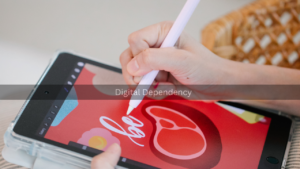In today’s rapidly advancing digital world, technology is both a blessing and a curse. For engineering professionals, technology serves as a crucial tool that drives innovation, efficiency, and productivity. However, the same technology that powers the modern engineering landscape also presents significant risks in the form of digital dependency and addiction. As engineers become increasingly reliant on digital devices, software, and communication platforms, the line between productive use and addiction blurs, leading to potential consequences for both their personal lives and professional careers.
The Nature of Technology Addiction
Technology addiction, also known as digital dependency, is characterized by an excessive and compulsive use of digital devices, leading to negative impacts on an individual’s mental and physical well-being. For engineers, this addiction often manifests through prolonged hours spent on computers, smartphones, and other digital platforms. The very tools designed to streamline their work can become sources of distraction, stress, and burnout.
One of the primary factors contributing to digital dependency in engineering is the constant connectivity provided by smartphones and laptops. The pressure to be available and responsive at all times can lead to an unhealthy cycle of checking emails, responding to messages, and engaging in work-related tasks outside of normal working hours. This always-on mentality blurs the boundaries between work and personal life, making it difficult for engineers to disconnect and recharge.
Impact on Productivity and Creativity
While technology has undoubtedly increased productivity in engineering, it can also have the opposite effect when used excessively. Constant interruptions from notifications, social media, and other digital distractions can disrupt an engineer’s focus, leading to decreased efficiency and a higher likelihood of errors. Multitasking, often encouraged by the digital environment, can result in a superficial engagement with tasks, ultimately compromising the quality of work.
Moreover, technology addiction can stifle creativity, an essential aspect of engineering. Creativity often thrives in moments of deep focus and mental relaxation, both of which are compromised by constant digital engagement. The overreliance on digital tools and the pressure to constantly produce can leave little room for the reflective thinking necessary for innovative problem-solving.
Mental Health Implications
The mental health implications of technology addiction are significant and cannot be overlooked. Engineers who are digitally dependent may experience heightened levels of stress, anxiety, and even depression. The constant connectivity and the pressure to keep up with rapid technological advancements can lead to feelings of inadequacy and burnout. The inability to disconnect from work-related tasks can also result in sleep disturbances, further exacerbating mental health issues.
Additionally, the social isolation that can result from excessive use of technology poses a threat to engineers’ overall well-being. As digital interactions replace face-to-face communication, engineers may find themselves feeling disconnected from their colleagues, friends, and family. This lack of meaningful social interaction can contribute to feelings of loneliness and exacerbate mental health challenges.
Mitigating Technology Addiction in Engineering
Addressing digital dependency among engineering professionals requires a multi-faceted approach. Employers can play a crucial role by promoting a healthy work-life balance and setting clear boundaries for after-hours communication. Encouraging regular breaks, digital detoxes, and the use of mindfulness techniques can also help engineers manage their technology use more effectively.
On an individual level, engineers can adopt strategies to reduce their digital dependency, such as setting specific times for checking emails, turning off non-essential notifications, and prioritizing face-to-face interactions whenever possible. Engaging in hobbies and activities that do not involve screens can also provide a much-needed break from the digital world and promote mental well-being.
Conclusion
While technology is an indispensable tool for engineers, the risks of digital dependency are real and must be addressed. By acknowledging the impact of technology addiction and taking proactive steps to mitigate it, engineering professionals can maintain their productivity, creativity, and mental health in the face of an increasingly digital world.
